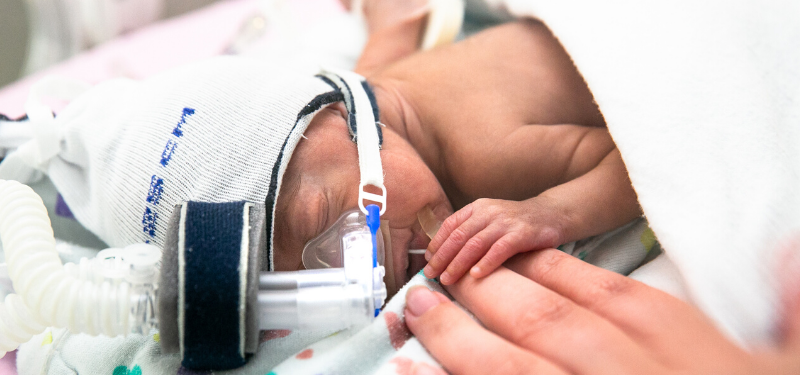New study shows quality-improvement programs increase survival of preterm babies

The rate of survival of very preterm babies in Canada increased 25 per cent after the national Evidence-based Practice for Improving Quality (EPIQ) program was introduced in neonatal intensive care units (NICUs) across the country, according to new research in CMAJ (Canadian Medical Association Journal).
The EPIQ program was introduced in 2003 by the Canadian Neonatal Network in 25 neonatal units to improve outcomes for premature babies. The study, originating from Sinai Health in Toronto, analyzed the effect of changes in care practices on outcomes for 50 831 infants born prematurely between 2004 and 2017. Researchers found that survival without major adverse health effects increased from 56.6 per cent to 70.9 per cent (25 per cent) for very preterm babies and from 70.8 per cent to 74.5 per cent (5 per cent) for babies born between 23 and 25 weeks’ gestation, over the course of the 14-year program.
“Within the Canadian neonatal community, we have developed a system of continuously learning from each centre about how evidence-based strategies are implemented and what are the barriers and facilitators for improving quality,” says Dr. Prakesh Shah, Paediatrician-in-Chief at Sinai Health and Director of the Canadian Neonatal Network. “This learning, combined with a regular flow of data to guide our practices, has significantly improved outcomes for most vulnerable newborns.”
An international study of 10 high-income countries found that neonatal outcomes improved the most in Canada, perhaps because of the EPIQ program, which is now standard practice in Canadian NICUs. It has also been adapted in other countries.
“Our study shows that if we apply what we know in a systematic way, we can improve quality of care and outcomes over the longer term for preterm babies,” says Dr. Shah.
Read more about the study in the latest issue of CMAJ.












